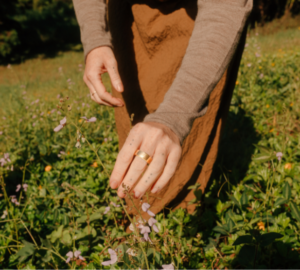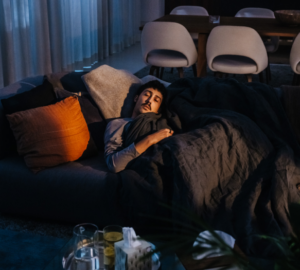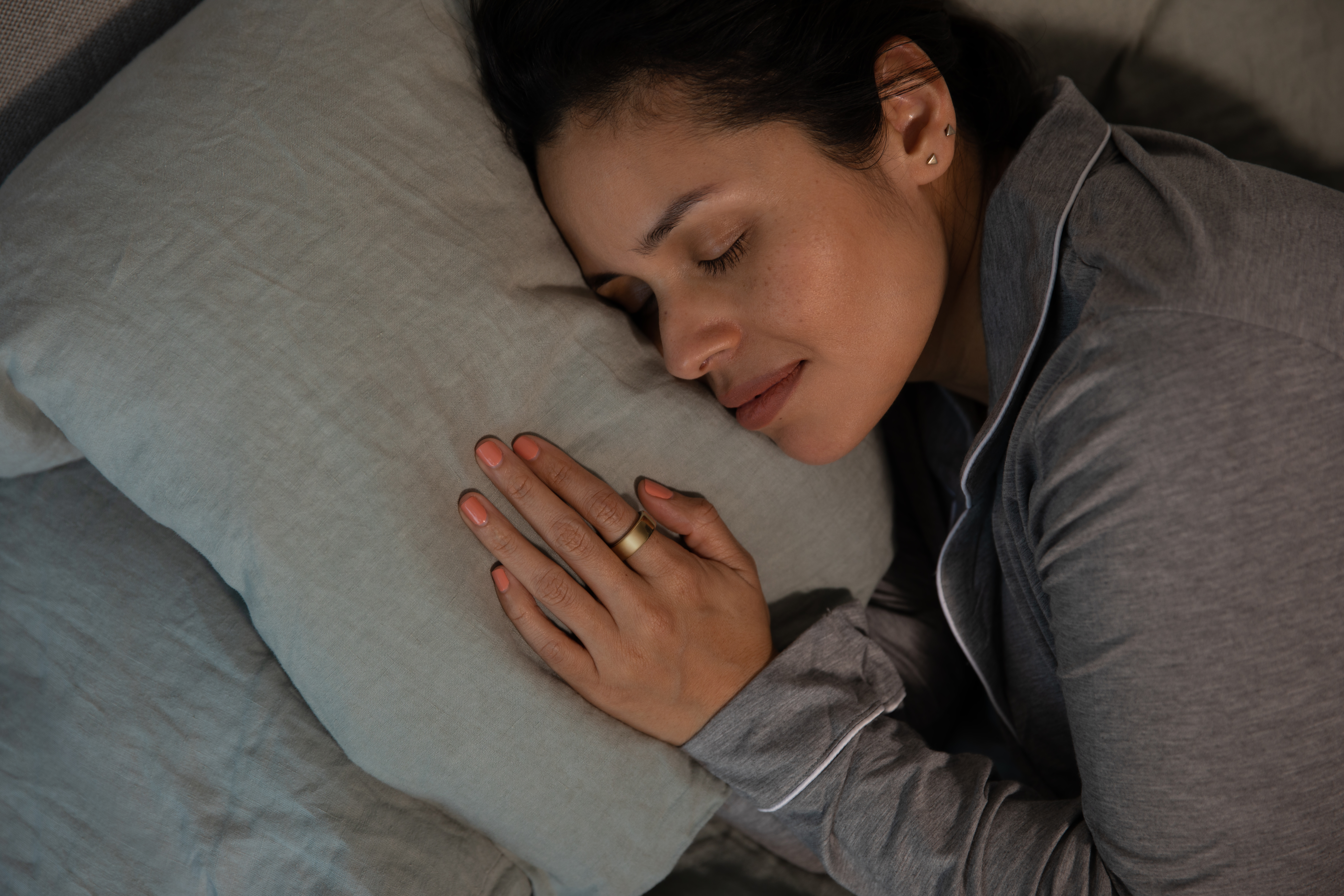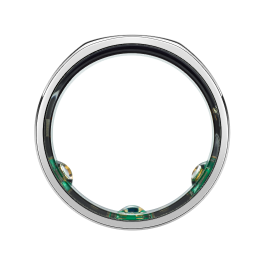- Beauty sleep is real. As you snooze, your entire body, including your skin, undergoes a number of physiological and hormonal processes that help you look your best.
- A lack of sleep can lead to inflammation, cell damage, reduced collagen production, dark undereye circles, and other telltale signs of sleep deprivation.
- Using Oura, you can learn more about your sleep quality over time and ensure you’re getting enough sleep to feel good about your overall appearance.
Dress to impress? More like rest to impress.
Sleep may be the best-kept beauty secret, as high-quality shuteye has been shown by science to boost your complexion and overall appearance. On the other hand, if you don’t get enough ZZZs, you might see some of the tell-tale signs of sleep deprivation — dull skin, eye bags, dark circles, and signs of accelerated aging.
| Member Tip: Using Oura features like Tags and Trends, you can identify specific habits that are helping (or hurting) your sleep quality, so can set yourself up for better sleep. |
Keep reading for the science behind beauty sleep, the benefits of sleep for the skin, and tips on how to get more beauty sleep.
Does Sleep Impact Your Appearance?
Yes. It shouldn’t be surprising that sleep definitely impacts your appearance — both positively and negatively.
According to a 2013 study published in Sleep, the most common signs of sleep deprivation show up as puffy or red eyes, dark circles, dull or pale skin, or hanging eyelids. These effects only compound over time if you continue to add to your sleep debt.
In a 2017 study, researchers examined the link between sleep and perceived beauty. After two days of sleep restriction, pictures were taken of participants and scored for attractiveness, health, sleepiness, and trustworthiness. The result: People perceived the participants as less attractive, less healthy, and more sleepy, and they were less inclined to socialize with them.
Other studies have also found that sleep deprivation is linked to weight gain and acne. And chronic poor sleep can also accelerate signs of aging, according to a 2015 study.
Don’t worry — there’s good news: High-quality sleep can enhance your looks, including your complexion, hair, and even your body weight.
How Sleep Affects Your Skin
The benefits of sleep go beyond feeling refreshed and energized. As you snooze, your body works hard to repair and regenerate your cells, tissues, and muscles — and your skin is no exception.
After a few nights of deep, restful sleep, you might be pleasantly surprised by radiant, supple skin, and even a more youthful glow. Here’s why that happens.
The Role of Sleep in Skin Repair and Regeneration
Your skin is like your body’s protective coating against the environment, which includes oxidative stressors like ultraviolet radiation, pollution, and metabolic byproducts. To uphold its integrity and functionality, your skin needs to constantly renew itself. This powerful process happens during sleep.
During deep sleep, your body ramps up skin renewal. Growth hormone, which is more heavily released during this sleep stage, promotes the growth and repair of skin cells. It activates cells called fibroblasts in the deeper layer of your skin to produce collagen, the protein that keeps skin strong, elastic, and youthful.
During sleep, your body also boosts the production of collagen, which can help remodel the skin’s structure and keep it firm and smooth. At the same time, enzymes that protect your skin by fighting off damaging free radicals become more active.
Finally, sleep helps your body clear out toxins and waste products through a process called lymphatic drainage, contributing to healthier skin.
These beneficial byproducts for your complexion have been backed up by science. In a 2015 study, the skin of people who slept well was compared to poor sleepers’ skin. While the poor sleepers had significantly higher intrinsic skin aging scores, the good sleepers had 30% better skin barrier recovery and reported better perceptions of their appearance and attractiveness.
Sleep Deprivation & Skin Aging
One way in which a lack of sleep affects your skin is by accelerating signs of aging, which include fine lines, wrinkles, dark spots, dullness, and dryness. Here are some of the mechanisms that cause these unwanted changes:
- Reduced collagen production: Lack of sleep disrupts collagen production, which can lead to the appearance of wrinkles and sagging skin.
- Increased cortisol levels: Sleep deprivation increases cortisol, a stress hormone. High cortisol levels can also break down skin collagen, diminishing skin’s smoothness and elasticity.
- Impaired skin barrier: The skin barrier protects against environmental pollutants and prevents excessive water loss. Insufficient sleep can weaken this barrier, making the skin more susceptible to damage from external factors and leading to dryness and uneven skin tone.
- Inflammation: Lack of sleep can lead to inflammatory responses in the body, which can accelerate aging by damaging skin cells. Chronic inflammation is linked to skin aging and conditions such as eczema and psoriasis.
- Less waste clearance: During deep sleep, the body increases blood flow to the skin, which helps with the removal of metabolic waste products. Sleep deprivation reduces this crucial detoxification process.
- Reduced antioxidant defense: Melatonin, the sleep hormone, increases during sleep, which has a powerful antioxidant effect to fight free radical damage. Insufficient sleep lowers these defenses, leading to oxidative stress — prematurely aging the skin.
Under-Eye Bags & Dark Circles
Under-eye bags and dark circles can often be genetic, but they are significantly worsened by poor sleep. Here’s how lack of sleep can lead to these effects:
- Reduced blood flow: Not getting enough sleep can slow down your circulation, leading to blood accumulating under your eyes. This pooled blood, when low in oxygen, takes on a darker, bluish tint. Since the skin under your eyes is thinner, this discoloration becomes more noticeable.
- Dilated blood vessels: Sleep deprivation can also cause blood vessels to expand. This dilation, triggered by stress hormones and inflammation, not only contributes to the appearance of eye bags but also makes any puffiness more apparent due to the enlarged vessels around the eyes.
- Fluid retention: Eye bags are partially caused by fluid retention. Without adequate sleep, your lymphatic system doesn’t drain properly, causing fluids to stagnate around the eyes. This results in your eyes appearing puffy, swollen, and somewhat droopy.
- Thinner skin: Chronic lack of sleep can break down collagen, reducing the skin’s plumpness and elasticity. Over time, this makes the skin under your eyes thinner and more translucent, exacerbating the appearance of dark circles due to the more visible blood vessels beneath.
The Science Behind Hair Growth and Sleep
 Looking for long, luscious locks? Here’s why you’ll want to catch some extra shuteye.
Looking for long, luscious locks? Here’s why you’ll want to catch some extra shuteye.
Hair growth operates on a continuous cycle that includes phases of growth, rest, and shedding. Research indicates that sleep significantly influences this cycle through mechanisms such as body temperature regulation, metabolism, and hormone secretion. Key hormones like growth hormone and melatonin also play crucial roles in regulating hair growth and shedding.
A 2022 study highlighted that sleep disturbances, including chronic sleep deprivation (less than six hours per night) and obstructive sleep apnea, are associated with hair loss (alopecia areata). Stress, which can worsen with insufficient sleep, was also identified as a significant contributing factor.
RELATED: How Stress Affects Your Sleep
Why Sleep Is Essential for Healthy Hair
Sleep is crucial for healthy hair growth as it aligns closely with your sleep-wake cycle and hormonal fluctuations. During sleep, your body enters a reparative state that enhances growth and regeneration, including hair follicles.
Chronic sleep deprivation can upset your body’s hormonal balance and hinder its capacity to regenerate hair follicles, potentially leading to thinner, duller hair and increased breakage.
However, obtaining consistent, high-quality sleep can support healthy hair growth by improving blood flow and nutrient delivery to the scalp and maintaining the necessary cyclical pattern that keeps your hair growing effectively.
The Relationship Between Sleep and Body Weight
There is a two-way relationship between sleep and body weight. Sleep deprivation complicates maintaining and losing weight by disrupting hormones that regulate appetite. And conversely, if you’re overweight, you’re also less likely to get a restorative night’s sleep.
Once again, the interplay of certain hormones is to blame. Insufficient sleep lowers leptin (which suppresses hunger) and raises ghrelin (which increases hunger), leading to stronger cravings for high-calorie foods. A 2023 study highlighted that these hormonal changes are especially pronounced in women after just one night of poor sleep, significantly influencing weight over time.
Additionally, adequate sleep is essential for insulin sensitivity and glucose metabolism. Proper sleep allows insulin to function effectively, enhancing sensitivity. In contrast, chronic sleep loss can cause insulin resistance and impaired glucose tolerance, contributing to weight gain.
Body weight also affects sleep quality. Excess weight, particularly excessive adipose tissue, may lead to physical changes like narrowed airways, increasing the risk of obstructive sleep apnea. It also promotes inflammation and hormonal imbalances, disrupting sleep patterns. Thus, both sleep and body weight influences each other, creating a cyclical impact on health.
How to Step Up Your Beauty Sleep
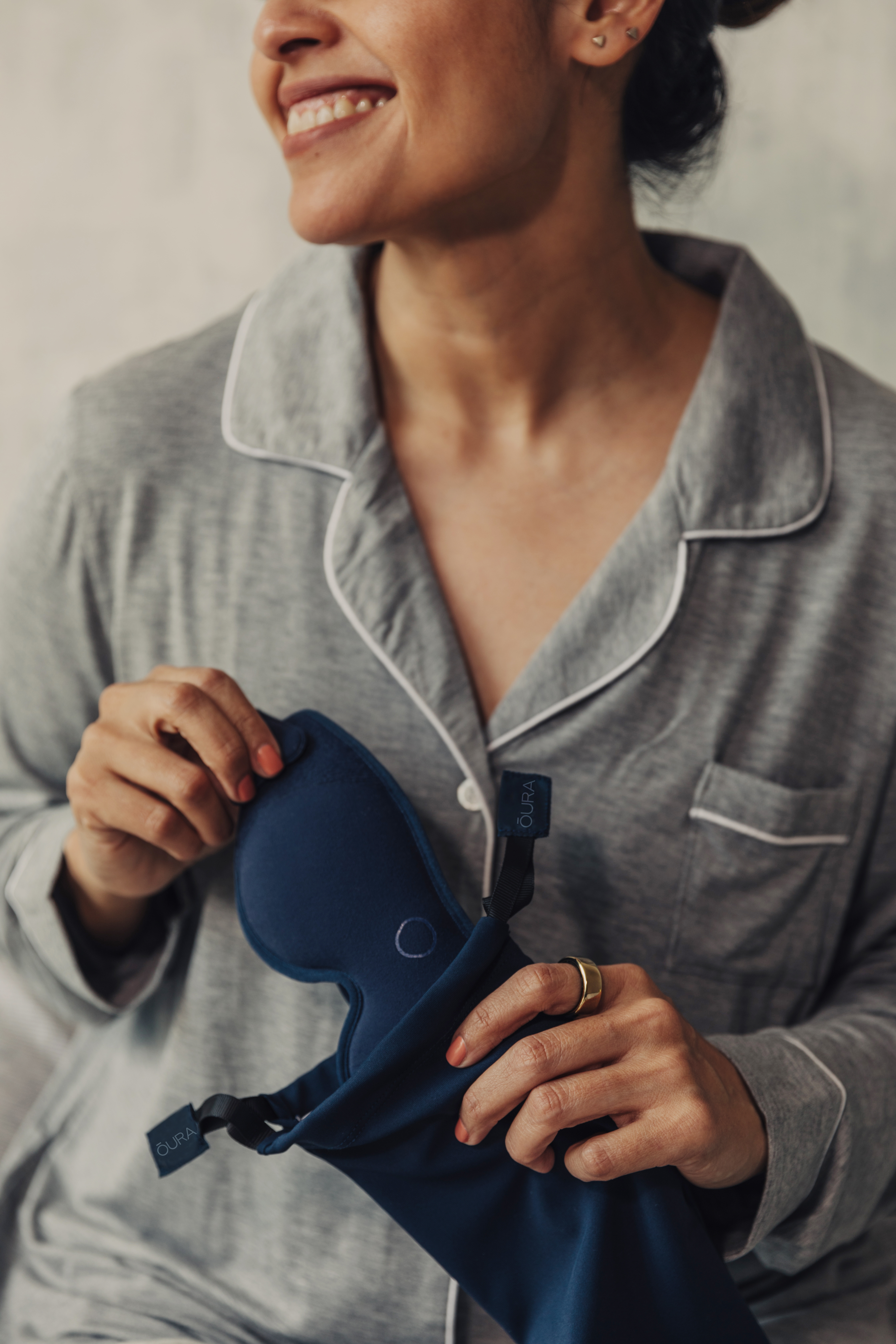 Making a few small, targeted changes can significantly improve both the quality and quantity of your sleep — and you may notice improvements in your appearance as well.
Making a few small, targeted changes can significantly improve both the quality and quantity of your sleep — and you may notice improvements in your appearance as well.
READ MORE: Get Back on Track: 5 Ways to Sleep Better Tonight
- Get a full night of high-quality sleep. Aim for 7 to 9 hours of uninterrupted sleep each night to ensure adequate rest and recovery, essential for maintaining a healthy, radiant appearance.
- Cleanse your face before bed. Washing your face to remove makeup and cleanse away the day’s dirt and toxins helps prevent pores from clogging and promotes skin renewal.
- Use an overnight moisturizer. Keeping your skin hydrated can combat wrinkles and promote elasticity. Apply a moisturizer before bedtime to lock in moisture and enhance your skin’s barrier function.
- Optimize your sleeping position. Sleep on your back to reduce facial compression and minimize the risk of sleep lines and wrinkles. Also, consider using a silk or satin pillowcase to decrease skin friction and prevent hair breakage.
- Elevate your head. Slightly raising the head while sleeping can help reduce fluid retention and lessen under-eye puffiness, potentially eliminating eye bags and dark circles.
RELATED: The Benefits of Morning Sunlight & How to Make it a Habit


